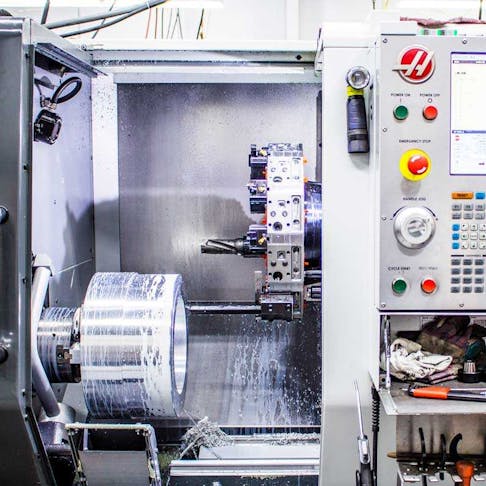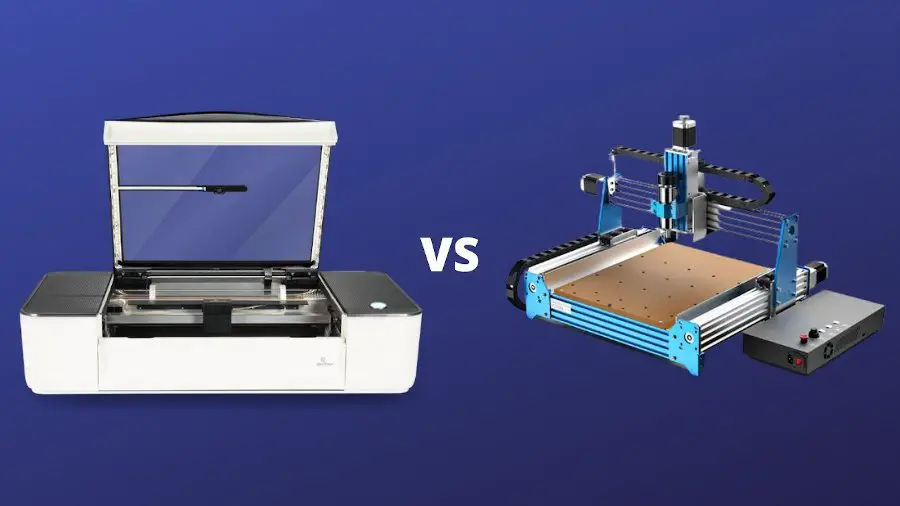Table of Contents
Are you planning to purchase a CNC machine but don’t know where to start? With so many options on the market, it can be overwhelming to select the right one for your needs. But don’t worry, we’ve got you covered. In this article, we will guide you through the key factors to consider when choosing a CNC machine, from the type of machine to the materials you will be working with. So, let’s dive in and explore the world of CNC machines together.
- Determine the type of work you will be doing.
- Consider the size of the machine and the workspace available.
- Decide on the level of automation you need.
- Choose between new or used machines.
- Research the manufacturer and look for reviews and recommendations.
- Consider the machine’s maintenance and support options.
- Compare prices and choose a machine that fits your budget.
How to Choose a CNC Machine?
Choosing the right CNC machine can be a daunting task, especially for those who are new to the manufacturing industry. With so many options available in the market, it can be difficult to determine which one is the best fit for your needs. In this article, we will discuss the key factors to consider when choosing a CNC machine.
1. Purpose of the Machine
The first step in choosing a CNC machine is to determine the purpose of the machine. What type of material will you be working with? What is the size of the material? What is the level of precision required? These are all important questions to consider when determining the purpose of the machine.
Once you have determined the purpose of the machine, you can start looking for machines that are designed specifically for that purpose. For example, if you are working with wood, you may want to look for a CNC router that is designed for woodworking.
2. Type of CNC Machine
There are several types of CNC machines available in the market, each with its unique features and capabilities. Some of the most common types of CNC machines include:
– CNC Router
– CNC Milling Machine
– CNC Lathe
– CNC Plasma Cutter
Each of these machines is designed for specific applications, so it is important to choose the machine that is best suited for your needs.
3. Size of the Machine
The size of the machine is another important factor to consider when choosing a CNC machine. The size of the machine will depend on the size of the material you will be working with. If you are working with small materials, a smaller machine may be sufficient. However, if you are working with larger materials, you will need a larger machine.
4. Level of Automation
The level of automation is another important factor to consider when choosing a CNC machine. Some machines are fully automated, while others require manual operation. The level of automation you choose will depend on your needs and the level of precision required.
5. Control System
The control system is the brain of the CNC machine. It is responsible for controlling the movement and operation of the machine. There are several types of control systems available, including:
– Fanuc
– Siemens
– Haas
– Heidenhain
Each of these control systems has its unique features and capabilities, so it is important to choose the one that is best suited for your needs.
6. Speed and Accuracy
The speed and accuracy of the machine are also important factors to consider when choosing a CNC machine. The speed of the machine will determine how quickly it can complete a job, while the accuracy will determine how precise the machine can be.
7. Maintenance and Support
Maintenance and support are important factors to consider when choosing a CNC machine. You will want to choose a machine that is easy to maintain and has good support from the manufacturer. This will ensure that you can keep your machine running smoothly and avoid any downtime.
8. Cost of the Machine
The cost of the machine is another important factor to consider when choosing a CNC machine. CNC machines can range in price from a few thousand dollars to several hundred thousand dollars. It is important to choose a machine that fits within your budget while still meeting your needs.
9. Training and Education
Training and education are important factors to consider when choosing a CNC machine. You will want to choose a machine that is easy to learn and comes with good training and educational resources. This will ensure that you can get the most out of your machine and maximize your productivity.
10. Warranty and Service
Finally, the warranty and service are important factors to consider when choosing a CNC machine. You will want to choose a machine that comes with a good warranty and has good service options. This will ensure that you can get the support you need if something goes wrong with your machine.
In conclusion, choosing the right CNC machine requires careful consideration of several factors, including the purpose of the machine, type of machine, size of the machine, level of automation, control system, speed and accuracy, maintenance and support, cost of the machine, training and education, and warranty and service. By taking the time to consider these factors, you can choose a machine that is best suited for your needs and can help you achieve your manufacturing goals.
Freequently Asked Questions
What are the factors to consider when choosing a CNC machine?
Choosing the right CNC machine is crucial for your business. You need to consider several factors to ensure you get the best value for your money. First, think about the size of the machine you need. This will depend on the size of the parts you will be machining. Second, look at the machine’s speed and accuracy. The faster and more accurate the machine is, the more efficient your operations will be. Third, consider the machine’s software. Make sure the software is user-friendly and compatible with your current programs. Fourth, evaluate the machine’s durability and maintenance requirements. Finally, choose a machine from a reputable manufacturer with a good track record.
When you have considered these factors, you can then weigh up the pros and cons of each machine and make an informed decision.
What types of CNC machines are available?
There are many types of CNC machines available, each designed for different applications. The most common types are milling machines, lathes, routers, plasma cutters, and lasers. Milling machines are used for cutting and drilling. Lathes are used for shaping and turning materials. Routers are used for cutting and shaping wood, while plasma cutters and lasers are used for cutting metal. Each machine has its own unique features, so it’s important to choose the one that best suits your needs.
What are the benefits of using a CNC machine?
Using a CNC machine offers several benefits. First, it increases efficiency and productivity. The machines can work continuously, without the need for breaks, reducing downtime and increasing output. Second, it improves accuracy and precision. The machines can produce consistent, high-quality products every time, reducing waste and saving money. Third, it reduces labor costs. The machines can perform tasks that would normally require several workers, reducing the need for manual labor. Fourth, it offers flexibility. The machines can be programmed to perform a wide range of tasks, making them ideal for a variety of applications.
What are the key features of a CNC machine?
The key features of a CNC machine include the control panel, cutting tools, workpiece holder, and coolant system. The control panel is where the operator inputs the program and controls the machine. The cutting tools are used to shape and cut the material. The workpiece holder securely holds the material in place while it is being machined. The coolant system is used to keep the cutting tools cool and lubricated, reducing wear and tear on the machine.
How much does a CNC machine cost?
The cost of a CNC machine varies depending on the type and size of the machine. Entry-level machines can cost as little as $10,000, while high-end machines can cost over $500,000. It’s important to consider the cost of the machine in relation to the benefits it will provide. A more expensive machine may offer better efficiency, accuracy, and durability, which can save money in the long run. It’s also important to factor in the cost of training, maintenance, and software when budgeting for a CNC machine.
In conclusion, choosing the right CNC machine is crucial for any manufacturing business. It requires careful consideration of several factors, such as the type of materials to be used, the complexity of the parts to be made, and the budget available.
The first step in choosing a CNC machine is to identify the specific needs of your business. Once you have a clear understanding of your requirements, you can then start researching the different types of CNC machines available in the market.
When researching CNC machines, it’s essential to look at the features and capabilities of each machine. Factors such as the size of the machine, the spindle speed, and the number of axes can have a significant impact on the quality and efficiency of your manufacturing process.
Ultimately, selecting the right CNC machine requires a balance between your budget and your specific needs. By following these steps and carefully considering your options, you can confidently choose a CNC machine that will help your business grow and thrive.
Request a quote today!
[contact-form-7 id="1578" title="Contact form"]
Please compress the file into a ZIP or RAR file before uploading. Alternatively, send through your RFQ by email.
enquires@unitymanufacture.com





